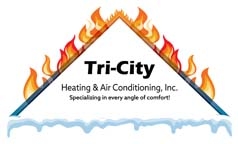Here’s our in-depth guide on installing air filters in your home to improve the quality of the air indoors. We’ll examine different kinds of installing home air filter, discuss important aspects of keeping indoor air clean, and offer a thorough, step-by-step home air quality installation guide in this post.
Come along on this journey to learn how choosing the ideal air filtration system for your home can improve your breathing and overall health.
#1 Knowledge of Indoor Air Quality
The quality of the air indoors has a direct impact on our general health and well-being. We are exposed to a variety of pollutants as soon as we enter our homes, which may have an adverse effect on our comfort and respiratory health. Dust, pollen, mold spores, pet dander, and volatile organic compounds (VOCs), which can come from cooking, furniture, and cleaning supplies, are examples of common indoor pollutants.
Inadequate indoor air quality can have serious repercussions, including allergies, asthma attacks, respiratory disorders, and even chronic health issues. We can improve the quality of the air we breathe indoors by indoor air quality solutions and being proactive and understanding the sources of indoor pollutants and their effects.
#2 Benefits of Air Filtration Systems
Enhancement of Respiratory Health
- By removing airborne pollutants that can irritate the respiratory system, air filtration systems are essential for enhancing respiratory health.
- Cleaner indoor air can result in fewer symptoms and less medication need for people with asthma, allergies, or other respiratory conditions.
- Air filters make indoor environments healthier by removing allergens like mold spores, dust mites, pet dander, and pollen. This facilitates better breathing and general well-being.
Reduced Allergic Responses
- One of the main causes of allergy symptoms like sneezing, coughing, congestion, and itchy eyes is airborne allergens.
- In particular, HEPA filters are very good at capturing allergenic particles, which helps allergy sufferers by lowering their indoor allergen exposure.
- Air filtration systems help reduce allergy symptoms and enhance the quality of life for people who are more susceptible to allergic reactions by eliminating allergens from the air.
Better Living Conditions
- Home air quality installation systems not only enhance respiratory health and lessen allergy symptoms, but they also make living spaces cleaner and more hygienic.
- Dusting and vacuuming less frequently is necessary because air filters capture dust, pet hair, and dander before they settle on surfaces throughout the house.
- In addition to improving aesthetic appeal, a cleaner living environment reduces the spread of airborne pollutants and makes the occupants’ space more comfortable and enjoyable.
Elimination of Odors
- The purpose of activated carbon filters is to capture and eliminate odors, such as those from cooking, pets, tobacco smoke, and common household chemicals.
- Air filtration systems contribute to the preservation of a clean, odor-free indoor environment by absorbing volatile organic compounds (VOCs), which are the source of offensive odors.
- Odor removal improves not only the quality of indoor air but also the overall livability and comfort of the home, making it a more welcoming place for both visitors and residents.
Defense Against Dangerous Chemicals and Gases
- Air filtration systems with activated carbon filters are capable of efficiently removing dangerous gases and chemicals from the air, in addition to particulate matter.
- When breathed over time, volatile organic compounds (VOCs) released by building materials, household goods, and indoor pollutants can be harmful to one’s health.
- Installing home air filter protect occupants’ health and well-being by reducing exposure to harmful substances by adsorbing VOCs and other chemical compounds.
Peace of mind
- It gives you peace of mind to know that your home is outfitted with a high-performing air filtration system, especially if you have allergies or respiratory issues.
- These systems make the interior air healthier by continuously filtering the air, which makes breathing easier and improves comfort and well-being for residents.
- Ensuring clean indoor air quality solutions contributes to residents’ overall peace of mind by fostering a sense of security and confidence in the safety and healthfulness of their home environment.
#3 Selecting the Appropriate Home Air Filter
When choosing an air filter for your home, there are several things to take into account, such as the size of your living area, particular concerns about the quality of the air, and HVAC system compatibility. Additionally, you can assess the filtration efficiency of various filters by being aware of important metrics like Minimum Efficiency Reporting Value (MERV) ratings.
Achieving a balance between cost and filtration efficiency is crucial when selecting an air filter. Better filters often offer better filtration performance and long-term savings in terms of energy efficiency and maintenance, even though they may cost more up front.
#4 Detailed Installation Instructions
Installing air filters in homes is a very simple task that requires little equipment and experience to accomplish. Finding the best place for the filter and making sure it works with your HVAC system are essential steps before starting the installation.
After deciding on the right filter and gathering the required equipment, follow these instructions to ensure a successful installation:
- Locate the filter housing and turn off the HVAC system.
- Take out the old filter and properly dispose of it.
- Make sure the new filter is correctly oriented as you insert it into the housing.
- Shut the filter housing and firmly insert the filter.
- Restart the HVAC system and check that there is enough airflow.
Maintaining your air filter’s continued effectiveness requires routine maintenance. To ensure optimum performance, make sure you follow the manufacturer’s instructions for cleaning and filter replacement.
#5 Exploring New Technologies
Technological developments in air filtration keep expanding the realm of possible indoor air quality control. IoT-enabled smart air purifiers provide real-time insights into air quality levels and filter status through remote monitoring and control via smartphone apps.
Since UV-C light technology neutralizes bacteria, viruses, and mold spores, it provides an extra line of defense against airborne pathogens. To offer complete air purification, these systems can be used independently or integrated into already-existing HVAC systems.
Eco-friendly substitutes, like reusable filters and live air-purifying plants, provide long-term fixes for better indoor air quality without sacrificing performance for those who care about the environment.
Using home air filters to improve indoor air quality is essential for creating a more comfortable and healthy living environment. Through comprehension of the advantages of air filtration systems and appropriate filter selection, you can effectively improve respiratory health and lessen allergy symptoms.
Simple installation is ensured, and sustained efficacy is guaranteed by routine maintenance. Investigating cutting-edge technologies, such as UV-C light and smart air purifiers, provides improved monitoring and purification options for air quality.
Reusable filters and air-purifying plants are examples of eco-friendly solutions that support sustainability and preserve clean indoor air. By putting these safeguards in place, you can make your home a safer, more comfortable place for you and your loved ones to breathe easier and prioritize health.













